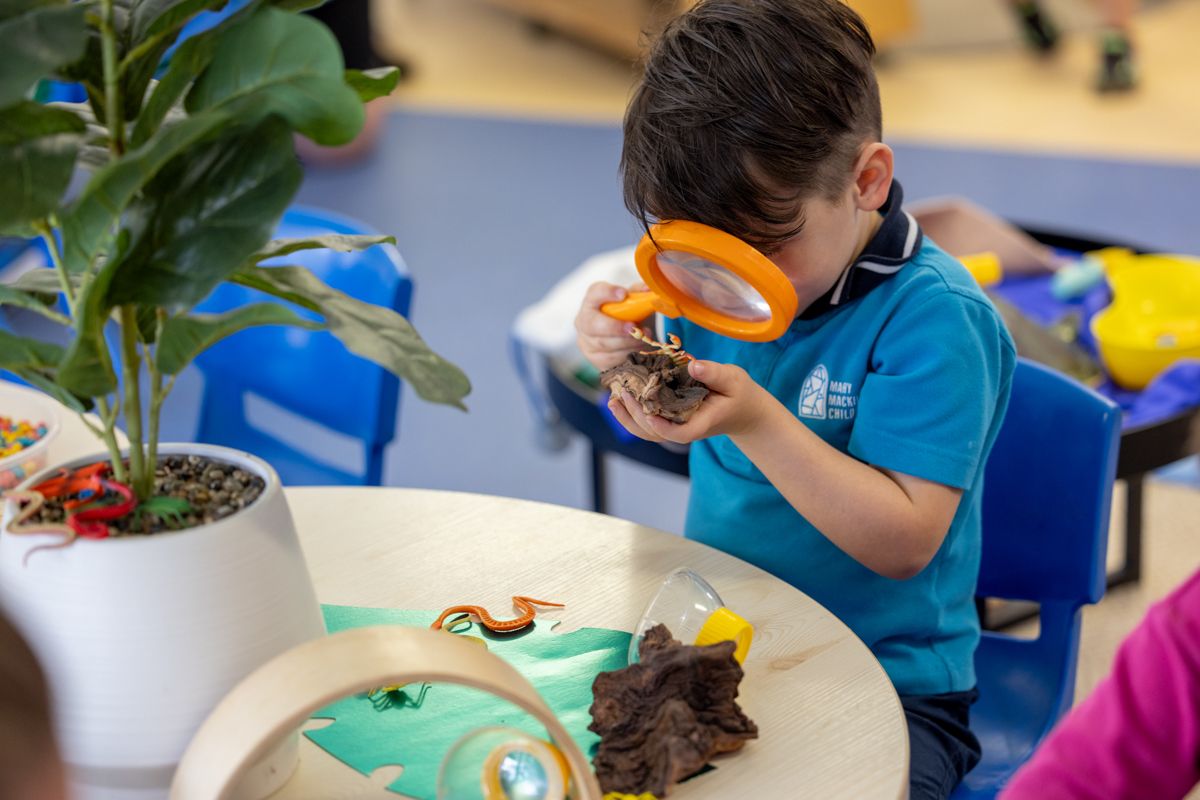EYLF Learning Outcome 1: Children have a Strong Sense of Identity
29 July 2025

The five learning outcomes of the Early Years Learning Framework (EYLF) target different areas of development for children from birth to 5 years old.
The EYLF Learning Outcome 1 focuses on helping children build a strong sense of identity. Here’s how the EYLF Learning Outcome 1 is applied in early learning centres, with example activities and strategies that educators use to promote identity development.
Learning concepts of the EYLF Learning Outcome 1
Identity is a broad concept that can be broken down into various aspects like culture, self-awareness, individuality, belonging, and resilience. Each aspect plays a part in how children understand themselves and interact with others around them.
There are four main learnings under the EYLF Learning Outcome 1:
- Children feel safe, secure and supported
- Children develop their emerging autonomy, inter-dependence, resilience and agency
- Children develop knowledgeable, confident self-identities and a positive sense of self-worth
- Children learn to interact in relation to others with care, empathy and respect
Children feel safe, secure, and supported
Children develop strong identities when they are able to explore freely within a stable environment. Predictable routines help build familiarity, instilling confidence during transitions between activities, such as playtime, naptime, and childcare drop-off.
Children who feel secure are also more able to openly communicate their needs and feelings to educators, parents, and peers.
How educators help children feel safe and supported
Educators build trust with children by responding to their needs. Over time, children learn to see educators as individuals that they can rely on for physical and emotional care during childcare.
Educators also consider cultural factors to make the environment more inclusive and welcoming for children, like speaking phrases in the language used at home or working with parents to understand culturally specific learning approaches.
Children develop their emerging autonomy, inter-dependence, resilience, and agency
Children develop identity as they become more independent. As children learn about their capabilities and needs, they begin to become more open to doing things on their own. Part of this newfound agency includes learning how to identify risks in decision-making, and exercising resilience when things don’t go according to plan.
How educators promote independence and agency in children
Educators apply learning strategies based on each child’s capacity for independence, providing opportunities for children to engage independently with routine tasks and play sessions. Simple activities, such as putting away toys or setting up the table for snacktime, allow children to gain more confidence doing things on their own.
Educators also support children’s efforts by offering affirmation for successful attempts and encouragement to make choices independently. Children gradually become more comfortable engaging independently, whether alone or in collaboration with others.
Children develop knowledgeable, confident self-identities, and a positive sense of self-worth
Identity also includes how children perceive themselves. Children develop a strong sense of self-worth when they feel proud of their cultural identity, have confidence in their ideas, and are recognised for who they are. This process of self-discovery is encouraged by educators through play activities and repeated affirmation.
How educators guide children in developing a positive sense of self-worth
Educators encourage children to share stories about their families, culture, and experiences. When children express pride in their achievements or share something about themselves, educators can actively listen and respond positively to encourage self-expression.
Educators also guide children in understanding their emotions, using moments during play or interactions with peers to explain why children feel a certain way, and what it means.
Children learn to interact in relation to others with care, empathy, and respect
Children develop identity based on the important relationships in their life - family, friends, and mentors are significant relationships that play a big role in shaping how children see themselves. Children who feel confident in who they are are more likely to form meaningful connections and treat others with care and respect.
How educators teach children to interact respectfully with others
Educators act as role models for respectful behaviour and support children in responding to others while considering their feelings. Group play sessions are opportunities for children to learn how to share, take turns, and recognise the needs of others.
Educators set up play environments that encourage cooperation and communication, such as getting children to build a tall tower with blocks. Group play sessions are supervised so that educators can step in when conflicts arise. Children are given space to think about their feelings in relation to others, and express their opinions in a respectful way.



